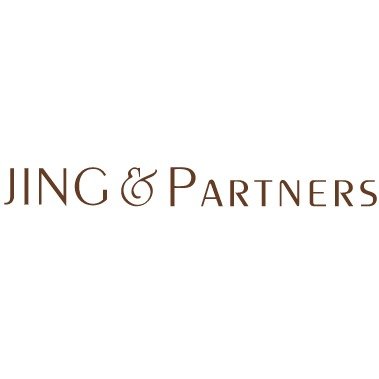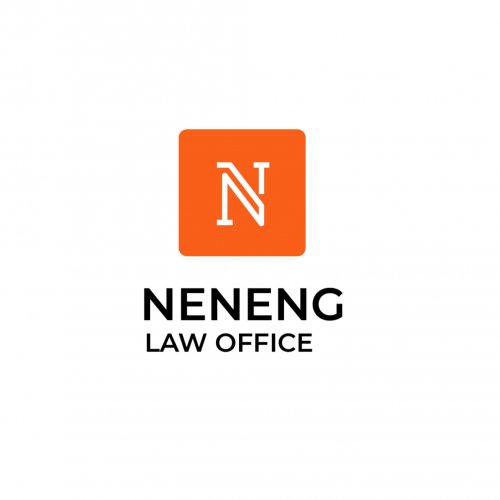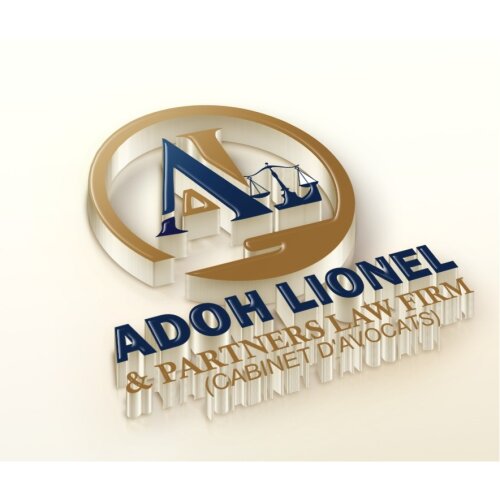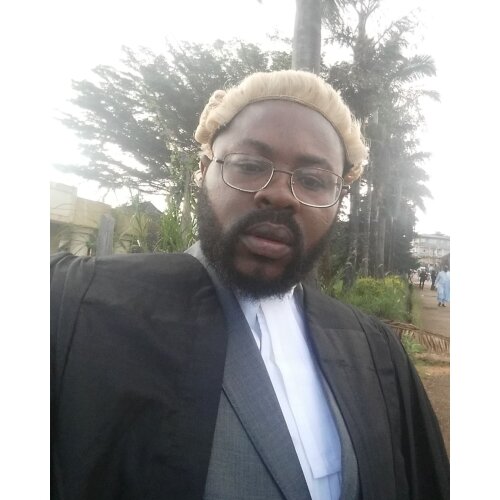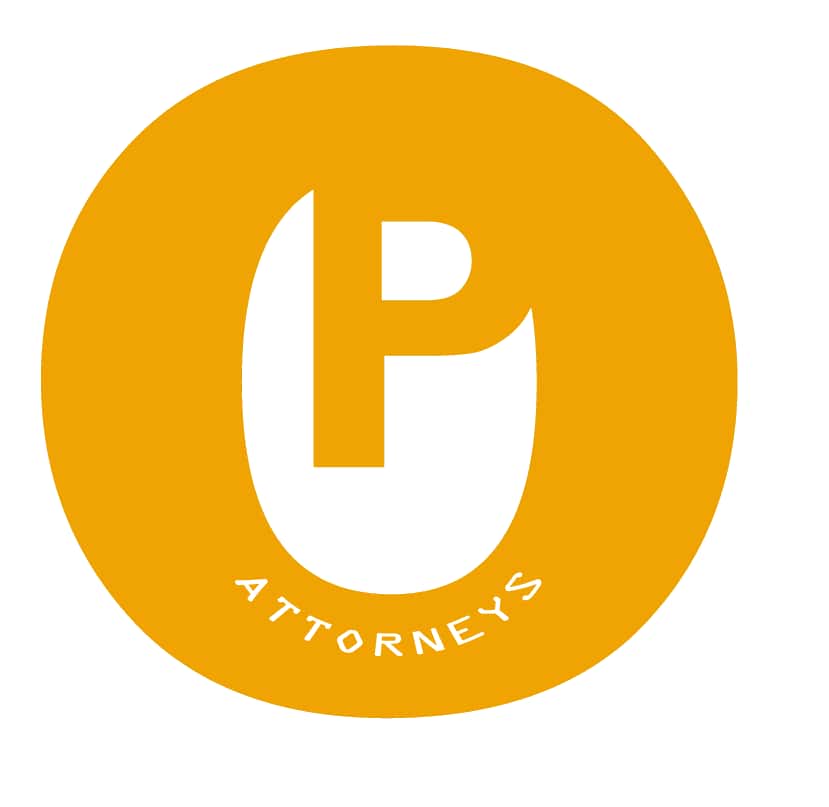Best Financial Services Regulation Lawyers in Cameroon
Share your needs with us, get contacted by law firms.
Free. Takes 2 min.
Or refine your search by selecting a city:
List of the best lawyers in Cameroon
Legal guides written by CHI & Partners Law Firm:
- Ship Registration in Cameroon
About Financial Services Regulation Law in Cameroon
Financial Services Regulation in Cameroon is designed to ensure the integrity, stability, and efficiency of the financial sector. It covers a wide range of activities, including banking, insurance, securities, and investments. The main regulatory authority is the Central African Banking Commission (COBAC), which works alongside the Ministry of Finance and other relevant bodies. The regulatory framework aims to protect consumers, maintain public confidence, and prevent financial crimes such as money laundering and fraud.
Why You May Need a Lawyer
There are several situations in which individuals or organizations may require legal help in the realm of Financial Services Regulation:
- Setting up a financial services company or branch in Cameroon can involve complex regulatory compliance.
- Encountering disputes with financial institutions regarding loans, investment products, or insurance claims.
- Ensuring compliance with anti-money laundering laws and other regulatory requirements.
- Dealing with investigations or audits by regulatory authorities.
- Understanding changes in local or regional financial regulation laws that may impact your business operations.
Local Laws Overview
Several key aspects of local laws are particularly relevant for Financial Services Regulation in Cameroon:
- Banking Law: Overseen by COBAC and the Bank of Central African States (BEAC), ensuring that banks operate safely and soundly.
- Securities Regulation: The Douala Stock Exchange (DSX) is the main securities market, regulated to ensure fair trading practices.
- Insurance Law: Managed by the Ministry of Finance, focusing on licensing, solvency, and consumer protection.
- Anti-Money Laundering (AML): Compliance with detailed AML regulations is mandatory for financial institutions, designed to prevent, detect, and report illicit financial activities.
- Consumer Protection: Financial institutions are required to adhere to rules that ensure transparency and fairness in treating consumers.
Frequently Asked Questions
1. What is the role of COBAC in financial services regulation?
COBAC, or the Central African Banking Commission, is the primary regulatory body overseeing the banking sector in Cameroon. It ensures the stability and proper functioning of banks and financial institutions through regulation and supervision.
2. Are there specific regulations for non-banking financial institutions in Cameroon?
Yes, non-banking financial institutions such as insurance companies, microfinance institutions, and investment firms are regulated by specific rules to ensure their solvency and consumer protection.
3. How can I verify if a financial institution is licensed in Cameroon?
You can verify the licensing of a financial institution through the Central African Banking Commission (COBAC) or the Ministry of Finance, which maintain updated records of licensed entities.
4. What are the penalties for non-compliance with financial regulations?
Penalties can range from fines, suspension of operations, revocation of licenses, and in severe cases, criminal charges against responsible individuals or entities.
5. What measures are in place to protect consumers' financial data?
Financial institutions must adhere to strict data protection laws, including secure handling of personal information and mandatory reporting of data breaches to the relevant authorities.
6. How are offenses like money laundering addressed by Cameroon's financial regulations?
Cameroon has stringent anti-money laundering laws in place, requiring institutions to perform due diligence, report suspicious activities, and keep comprehensive transaction records.
7. What should I do if I have a dispute with a bank or financial institution?
It is advisable to initially address the issue directly with the financial institution. If unresolved, you may file a complaint with COBAC or seek legal assistance for more complex disputes.
8. Are there regulations governing digital financial services?
Yes, digital financial services such as mobile banking and online payments are regulated to ensure security, consumer protection, and compliance with AML requirements.
9. How often do financial laws change in Cameroon, and how can I stay updated?
Financial laws can change depending on regional or international economic trends, regulatory reviews, and policy initiatives. Staying updated involves regularly consulting COBAC publications, the Ministry of Finance announcements, or engaging with a legal advisor familiar with these updates.
10. What is the legal framework for financial transactions within the CEMAC region?
The Economic and Monetary Community of Central Africa (CEMAC) provides a regional legal framework that member countries, including Cameroon, must adhere to, promoting integration and harmonization of financial regulations.
Additional Resources
Consider the following resources for additional information or assistance:
- Central African Banking Commission (COBAC): Regulatory authority providing guidance and oversight for banking activities.
- Ministry of Finance Cameroon: Offers resources on public finance policies and regulations affecting financial services.
- Douala Stock Exchange (DSX): Platform providing rules and information related to securities trading in Cameroon.
- Financial Intelligence Unit (FIU): Monitors and reports on money laundering activities.
- Professional Legal Advisors: Engaging with firms specializing in financial services law for personalized advice can be highly beneficial.
Next Steps
If you need legal assistance with Financial Services Regulation in Cameroon, consider the following steps:
- Identify the specific legal issues or questions you have regarding financial regulation.
- Consult with a legal professional who specializes in financial services regulation to understand your rights and obligations.
- Gather all relevant documents and information related to your situation before meeting with a lawyer.
- Contact relevant regulatory bodies if you need direct information or wish to report an issue.
- Stay informed about changes in financial regulation that could affect your issue or business operations.
Lawzana helps you find the best lawyers and law firms in Cameroon through a curated and pre-screened list of qualified legal professionals. Our platform offers rankings and detailed profiles of attorneys and law firms, allowing you to compare based on practice areas, including Financial Services Regulation, experience, and client feedback.
Each profile includes a description of the firm's areas of practice, client reviews, team members and partners, year of establishment, spoken languages, office locations, contact information, social media presence, and any published articles or resources. Most firms on our platform speak English and are experienced in both local and international legal matters.
Get a quote from top-rated law firms in Cameroon — quickly, securely, and without unnecessary hassle.
Disclaimer:
The information provided on this page is for general informational purposes only and does not constitute legal advice. While we strive to ensure the accuracy and relevance of the content, legal information may change over time, and interpretations of the law can vary. You should always consult with a qualified legal professional for advice specific to your situation.
We disclaim all liability for actions taken or not taken based on the content of this page. If you believe any information is incorrect or outdated, please contact us, and we will review and update it where appropriate.
Browse financial services regulation law firms by city in Cameroon
Refine your search by selecting a city.






